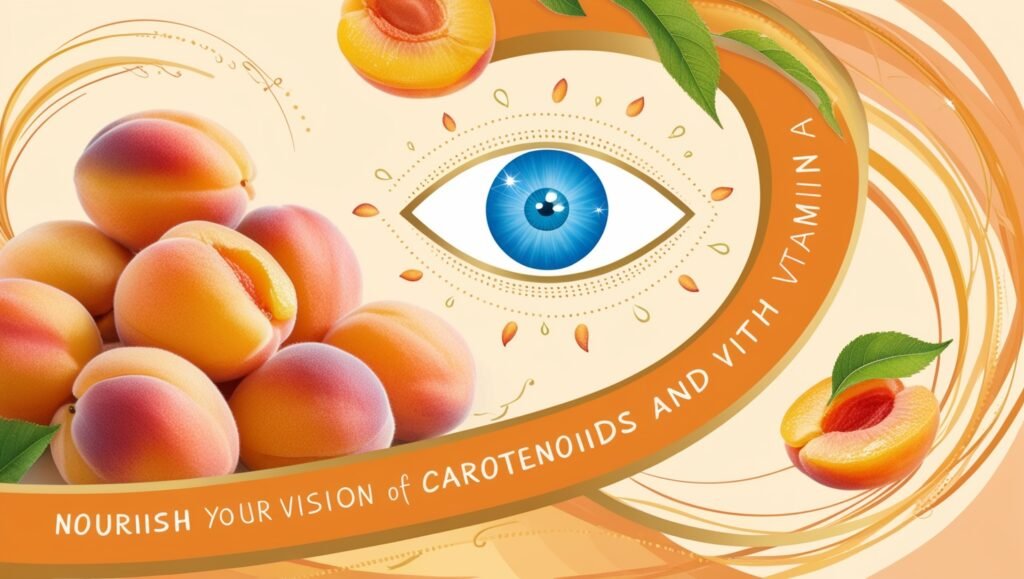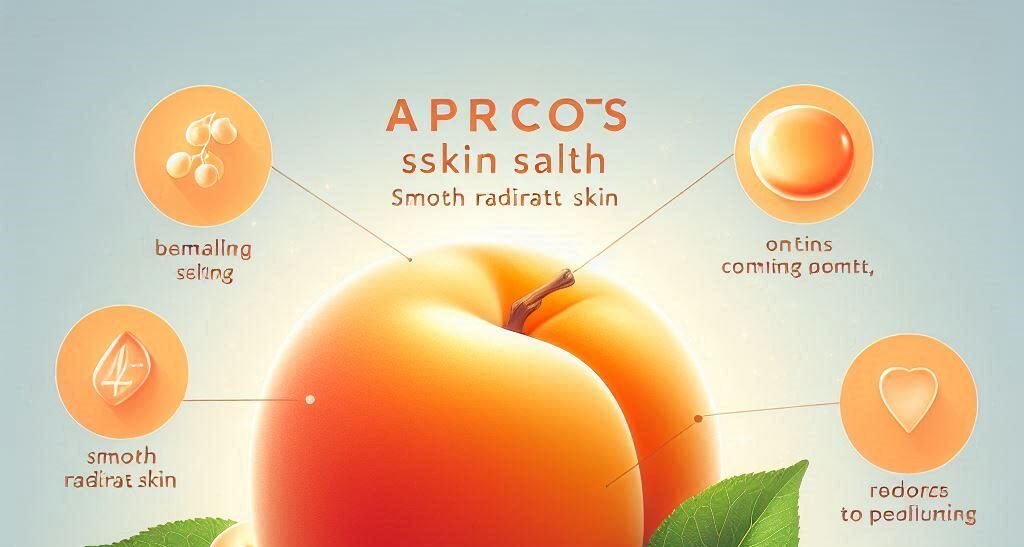Apricots (Prunus armeniaca) are not just delicious; they are also packed with numerous health benefits that make them a powerful healing food. These small, golden-orange fruits have been cherished for their medicinal properties for centuries. Originating in China, apricots have spread across the globe, becoming a staple in many cultures’ diets. In this article, we will explore eight key health benefits of apricots and how they contribute to overall well-being.

Rich in Nutrients
Apricots are a nutrient-dense fruit, offering a variety of vitamins and minerals essential for good health. They are particularly high in vitamins A and C. Vitamin A is vital for vision, immune function, and skin health, while vitamin C is an important antioxidant that helps protect the body from free radical damage. A typical 80-gram serving of apricots provides approximately 25 calories, making them a low-calorie snack that is both satisfying and nutritious. The high nutrient content makes apricots a valuable healing food that supports overall health.

High in Antioxidants
One of the standout features of apricots is their high concentration of antioxidants. These include carotenoids (such as beta-carotene), flavonoids, and phenolic acids. Antioxidants play a crucial role in protecting the body from oxidative stress, which can lead to chronic diseases and aging. By neutralizing free radicals, these compounds help reduce inflammation and improve overall cellular health. Including apricots in your diet can enhance your intake of these protective compounds, making them a powerful healing food.

Eye Health
Apricots are particularly beneficial for eye health due to their rich content of carotenoids, especially lutein and zeaxanthin. These compounds are essential for maintaining good vision and protecting against age-related eye conditions such as macular degeneration and cataracts. Vitamin A, derived from beta-carotene, is crucial for the formation of rhodopsin, a protein in the retina that helps the eyes adapt to low light conditions. Regular consumption of apricots can contribute to better eyesight and may help delay the onset of age-related visual decline, reinforcing their status as a healing food.

Skin Health
The antioxidants found in apricots, particularly vitamins A and C, play a significant role in promoting skin health. Vitamin C is essential for collagen synthesis, which helps maintain skin elasticity and firmness. Additionally, the antioxidants in apricots protect the skin from damage caused by environmental factors such as UV radiation, pollution, and smoking. Studies have shown that a diet rich in carotenoids can improve skin radiance and reduce signs of aging, making apricots an excellent choice for those looking to enhance their skin’s vitality. As a healing food, apricots contribute to healthy, radiant skin.

Digestive Health
Apricots are an excellent source of dietary fiber, which is vital for maintaining healthy digestion. Fiber aids in preventing constipation by promoting regular bowel movements and maintaining normal gastric transit. Furthermore, apricots contain sorbitol, a natural sugar alcohol that can help manage constipation when consumed in adequate amounts. The combination of fiber and sorbitol makes apricots a beneficial fruit for digestive health, contributing to overall gastrointestinal well-being. This makes apricots a valuable healing food for digestive health.
Gut Health Support
In addition to promoting digestive health, apricots also support a healthy gut microbiome. The fiber in apricots acts as a prebiotic, providing nourishment for beneficial gut bacteria. A balanced gut microbiome is essential for overall health, as it plays a crucial role in digestion, immune function, and even mental health. By including apricots in your diet, you can help foster a diverse and thriving gut microbiome, which is linked to numerous health benefits. This underscores the importance of apricots as a healing food for gut health.
Cardiovascular Health
The cardiovascular benefits of apricots are largely attributed to their high levels of potassium and fiber. Potassium is an essential mineral that helps regulate blood pressure by counteracting the effects of sodium. A diet rich in potassium can help lower the risk of hypertension and stroke. Additionally, the fiber in apricots aids in reducing cholesterol levels and improving overall heart health. Regular consumption of apricots can contribute to a healthier cardiovascular system, making them a heart-friendly healing food.
Cancer Prevention Potential
The antioxidants found in apricots, including vitamins A, C, and various flavonoids, have been associated with a reduced risk of certain cancers. These compounds help neutralize free radicals, which can cause cellular damage and contribute to cancer development. Some studies suggest that a diet rich in fruits and vegetables, particularly those high in antioxidants, may lower the risk of cancer. While more research is needed to establish a direct link between apricot consumption and cancer prevention, their antioxidant properties make them a valuable addition to a cancer-fighting diet. Thus, apricots hold promise as a healing food with cancer prevention potential.

Conclusion
In summary, apricots are a nutrient-dense fruit that offers a wide range of health benefits. From supporting eye and skin health to promoting digestive wellness and cardiovascular health, the power of apricots as a healing food is undeniable. Their rich content of protective plant compounds, vitamins, and minerals makes them an excellent choice for anyone looking to enhance their overall health. Incorporating apricots into your diet—whether fresh, dried, or in various dishes—can be a delicious and effective way to reap these benefits. Embrace the power of apricots and enjoy their numerous health advantages as part of a balanced diet.



